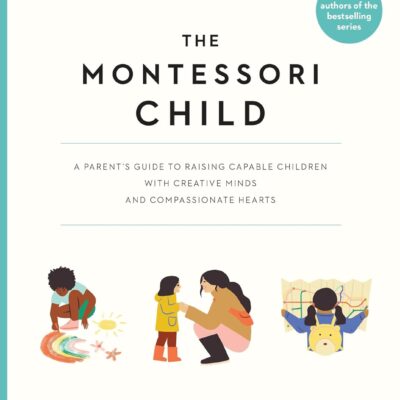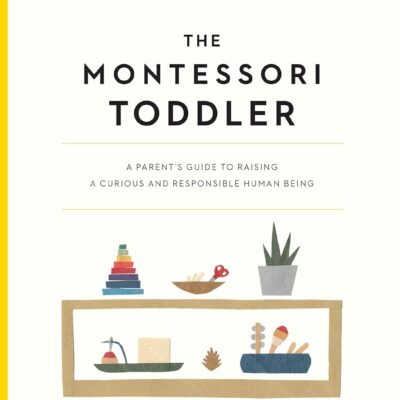by Nicole Allsop, Registered Dietitian and Montessori Educator
In the classroom, many experiences are shared by children, families, and teachers. Success depends on many factors, with health and well-being playing major roles. The more one delves into this, the clearer it becomes how impactful these factors are and how crucial it is to include them in observation categories. Early detection would make significant differences, and the benefits would be far-reaching. Understanding the connection would allow families to collaborate more effectively, benefiting everyone involved. Research-based evidence provides the foundation for demonstrating the strong relationship between health and learning, as well as the consequences of neglecting it. This article draws on scientific evidence to support health education.
Diseases, ailments, high levels of stress, and sleep deprivation (both in terms of hours and quality) have negative consequences that show up in the classroom in various ways: irritability, loss of focus, lack of concentration, low productivity, and absenteeism, to name a few. Many lifestyle or non-communicable diseases, which can often be minimized or eradicated, affect our ability to function optimally and manage life’s stressors.
From a professional perspective, it would be remiss to focus solely on neuroscience and learning without considering other factors that ultimately affect the brain and have a negative domino effect on learning. Poor nutrition, lack of exercise, and weakened health status adversely affect brain function, leading to an inability to learn effectively. Therefore, this article discusses neuroscience alongside other health issues, including neuro disorders, mood disorders, non-communicable diseases, stress, and sleep deprivation. These affect not only children but also the adults in their environment, who serve as role models in both direct and indirect learning. As Julia Volkman notes, “Our brains physically adapt as we strive to be like the people around us.”
Teachers are part of the child’s environment and learning process, so they must take the time to care for themselves, preparing both physically and mentally to serve children in a healthy way and set a good example. As Dr. Maria Montessori wrote, “Now the adult himself is part of the child’s environment” (The Secret of Childhood). A teacher in poor health will create a ripple effect on a child’s learning. How can one think clearly, or manage a frustrated child or parent, when one is ill? When internally distracted or sick, how can one concentrate, be observant, or fully present? A teacher’s absenteeism, mood changes, dehydration, or weakened immune system can negatively impact their interactions with students. In turn, frustrated moments affect a student’s learning as they try to cope with how they are feeling.
Children observe and often mimic the behaviors of adults around them. As Montessori said, “The child reproduces in himself, as by a form of psychic mimesis, the characteristics of the people in his environment.” It is vital to understand lifestyle diseases and the habits responsible for them. Young children, lacking the maturity to fully identify or express their feelings or underlying problems, are not in control of these factors. A poor or skipped breakfast or dehydration, will leave children irritable, unfocused, or misbehaving—not because they are inherently disruptive, but because their brain and body are not adequately nourished.
A common sign of dehydration is a headache, and no one can focus with a headache. According to Adan in Cognitive Performance and Dehydration, “being dehydrated by just 2 percent impairs performance in tasks that require attention, psychomotor skills, and immediate memory, as well as one’s subjective state.” Furthermore, research by Popkin et al. notes that “physical performance decrements in athletes have been observed with as little as 2 percent dehydration. Under mild dehydration, individuals engaging in rigorous physical activity experience reduced endurance, increased fatigue, altered thermoregulation, reduced motivation, and increased perceived effort.” Rehydration reverses these deficits and reduces oxidative stress induced by exercise and dehydration (Popkin, Barry M., et al., 2010).
These factors should not be overlooked and should be added to our checklist of concerns. Waiting to feel thirsty is a bad habit; thirst means the body is already dehydrated to some degree. Thirst equals dehydration. Throughout the day, we can become so engrossed in activities that we forget to drink water. This can also happen during a child’s work cycle, so it’s important to allow frequent water breaks and make conscious efforts to build hydration into the classroom routine. The table shows the adequate daily fluid intake in milliliters.
Water Requirements In Relation To Energy Recommendations
AI for total fluids derived from dietary reference intake for water, potassium, sodium, chloride, and sulfate. Ratios for water intake based on the AI for water in liters/day calculated using EER for each range of physical activity. EER adapted from the Institue of Medicine Dietary Reference Intakes Macronutrients Report, 2002.
The Role of Nutrition and Hydration
Many parents know the importance of breakfast, but it’s easy to overlook just how vital it is to your child’s school day. Skipping breakfast or eating sugary, processed foods can leave children feeling tired, irritable, and unable to concentrate. They may “misbehave” simply because their brains aren’t getting the nutrients they need.
Dehydration can also cause problems. Just a small amount of dehydration—about 2 percent—can lead to headaches and make it hard to focus. Research shows that dehydration affects children’s attention span, memory, and even their ability to complete simple tasks. To avoid this, encourage your child to drink water regularly throughout the day, not just when they feel thirsty. Once you feel thirsty, you’re already somewhat dehydrated. So, building regular water breaks into your child’s routine can make a big difference in their ability to stay focused and calm during the school day.
Practical Tips for Parents
• Start the day with a healthy breakfast. A balanced meal with protein, whole grains, and healthy fats will give your child lasting energy.
• Encourage regular water intake. Send children to school with a water bottle and remind them to drink regularly.
• Promote physical activity. Regular exercise not only keeps children fit but also helps them concentrate better in school.
• Ensure adequate sleep. A consistent sleep routine is vital for brain function and emotional regulation.
• Model healthy habits. Children are always watching, so if you prioritize your own health, they’re more likely to follow suit.
Healthy children are better learners. Small changes in your child’s daily habits can significantly impact their ability to focus, stay calm, and thrive in school.
Look for Part 2 in the next issue.
Reference
Adan, A. “Cognitive Performance and Dehydration.” Journal of the American College of Nutrition, U.S. National Library of Medicine, pubmed.ncbi.nlm.nih. gov/22855911/.
Montessori, Maria – Discovery of the Child, The Secret of Childhood, The Absorbent Mind, and The London Lectures 1949.
Popkin, Barry M., et al. “Water, Hydration, and Health.” Nutrition Reviews, U.S. National Library of Medicine, August 2010, www.ncbi.nlm.nih.gov/pmc/ articles/PMC2908954/.
Volkman, Julia. “Stuff by Julia.” Maitri Learning, www.maitrilearning.com/pages/learning-center.
“Brain Development.” ZERO TO THREE, www.zerotothree.org/espanol/brain-development.
Nicole Allsop is a registered dietitian nutritionist, exercise professional, and Montessori educator. She is part of the NewGate community, and has a keen interest in building habits for a lifetime of wellness in families. She has authored books that can be purchased on The Montessori Library website: www.montessorilibrary.com









